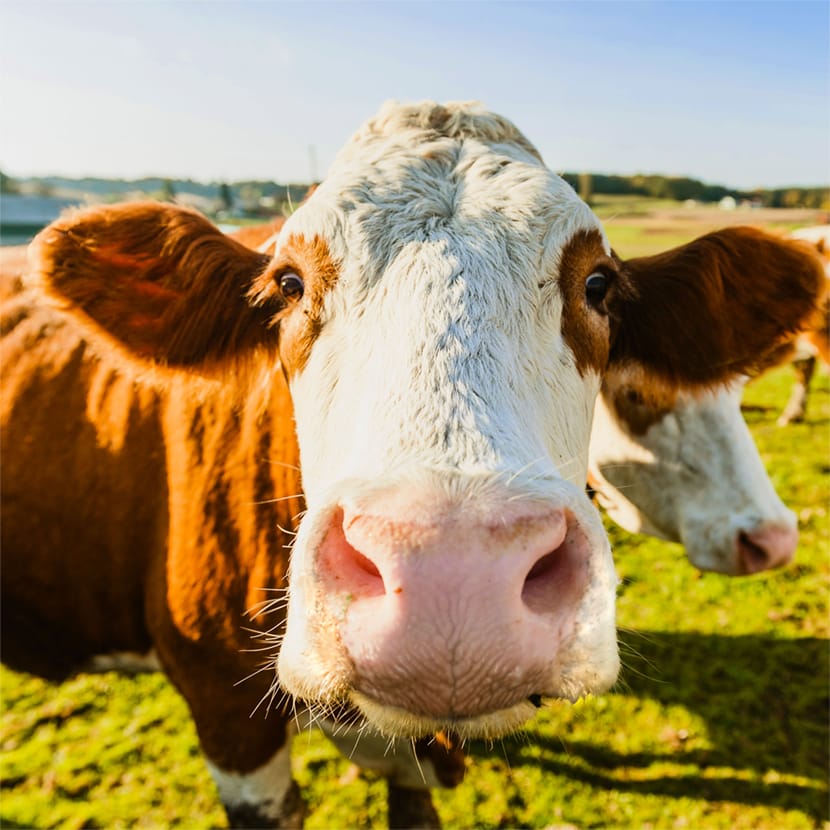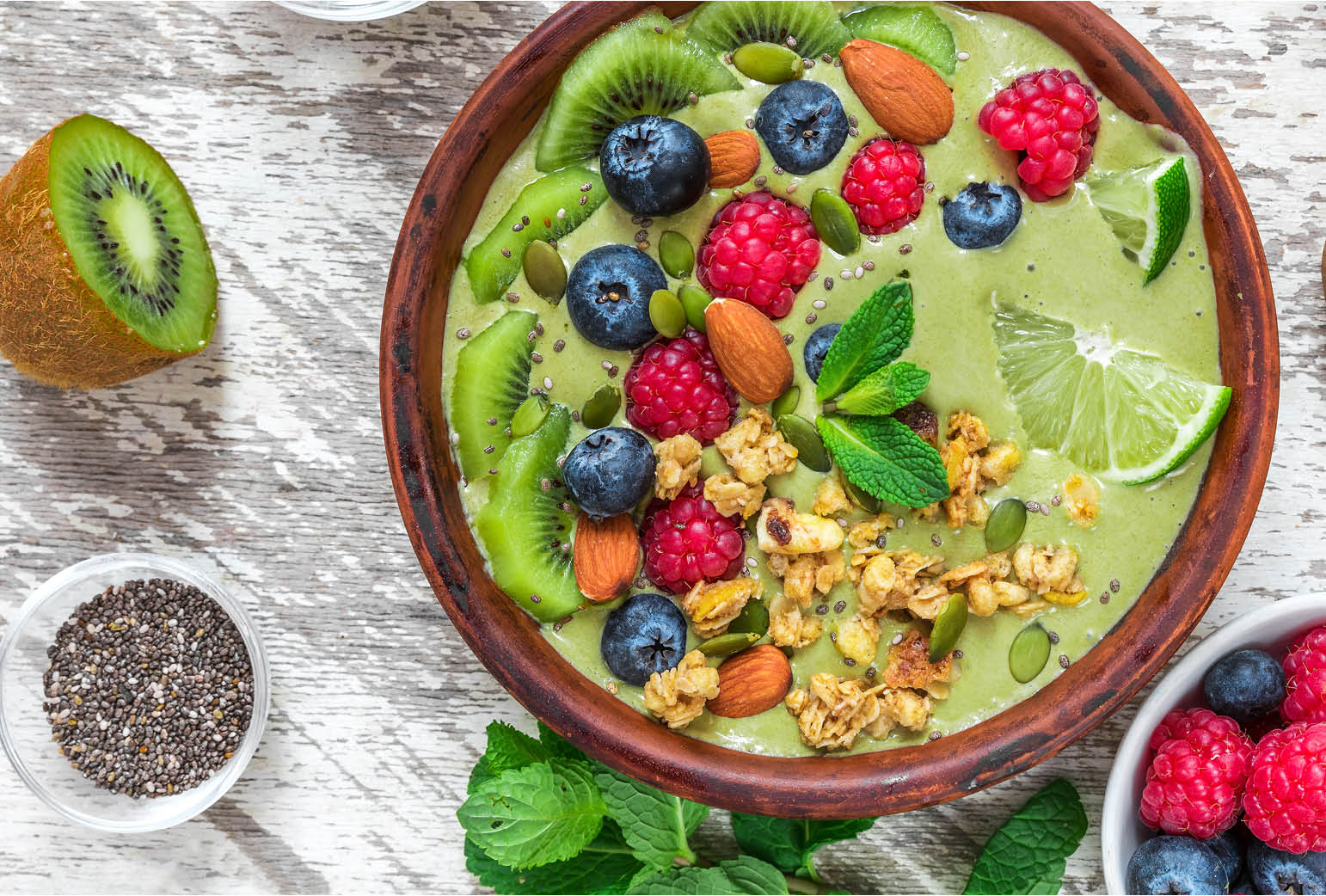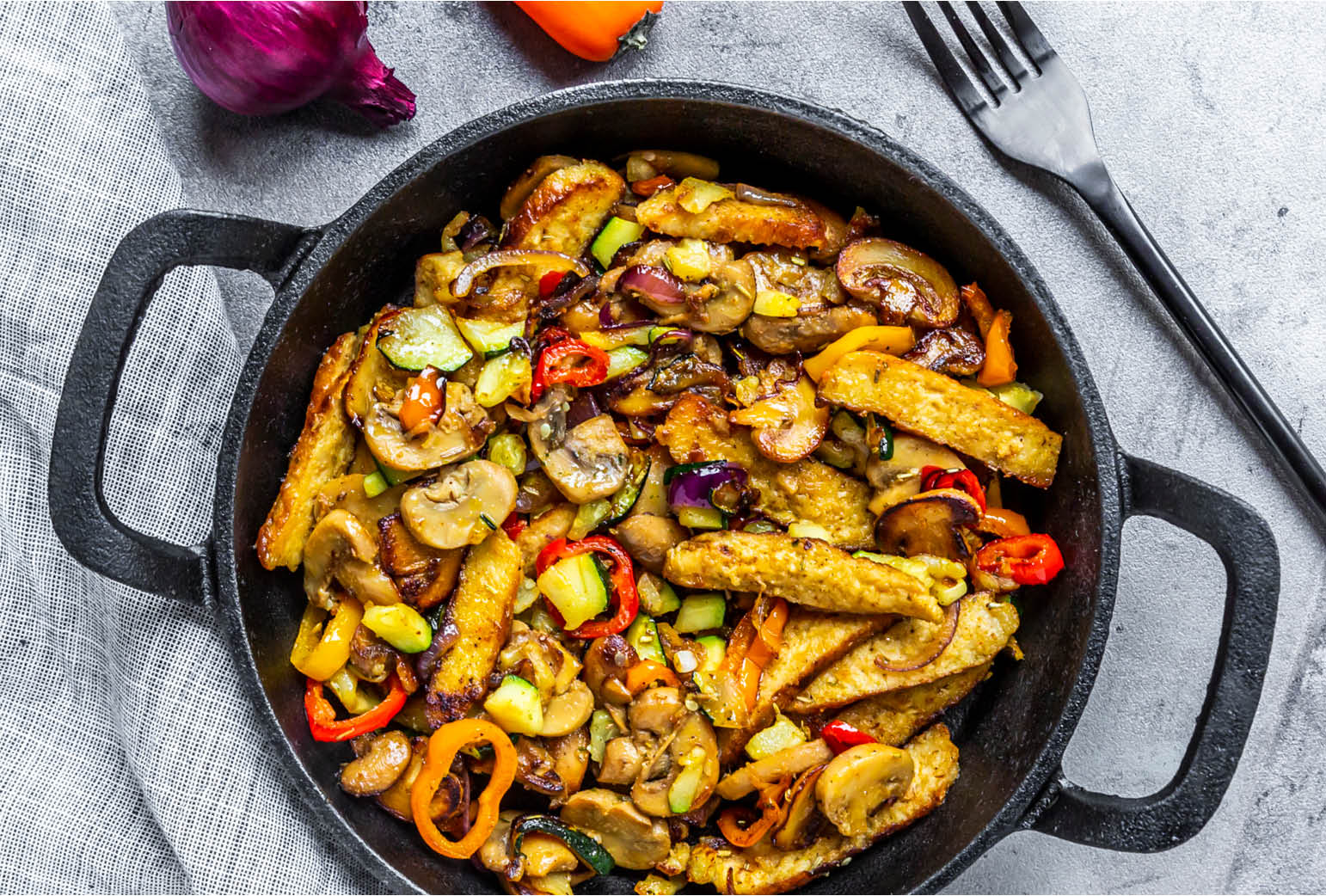every plant-based meal raises life expectancy and quality
Who decides for a vegan way of life, does this not always only for animal welfare reasons. Aspects such as sustainability, environmental protection, CO2 emissions and a generally healthier lifestyle now weigh almost as much as the protection of animals from exploitation and poor keeping. But no matter for which reasons the plant-based diet is started, it indisputably has some tangible benefits to offer - for the environment, for the animals and for one's own health.



less meat- higher life expectancy? vegans live healthier and longer
Beside many vegan prejudices, also a beautiful "rumor" holds itself over a purely vegetable nourishing way - that Veganer by their nutrition clearly healthier lives. That this is more than a rumor, recently again researchers of the University OF Barth scientifically supported. Their study, published in Future Foods magazine in December 2021, concluded that "plant-based meat and dairy alternatives offer a healthier and more environmentally sustainable solution that accommodates consumer preferences and behaviors." Moving forward, the study was able to substantiate that vegan foods and dishes offer a variety of health benefits. Nevertheless, naturally must be paid attention also with the vegan nutrition to balance of the meals and sufficient activity in the everyday life, in order to exhaust the health potential of the vegan food fully.
Who pays attention to these points, can be rewarded as Veganer even with a higher life expectancy. To this result the Adventist Health Study 2 came at that 73,000 study participants were examined. The test persons were divided depending upon nourishing way into groups: Vegans, lacto-ovo vegetarians, fish eaters, infrequent meat eaters and meat eaters. Among many other aspects, conclusions were drawn about the dependence of diet and mortality. With quite clear results. While vegetarians, who nourish themselves well-balanced and healthy live could show a mortality around 12 per cent lower, they were outdone only by vegan living humans, who could lower their mortality risk around full 15 percent.

As reasons for this result the researchers called a fundamentally healthier nutrition and the reduced risk for cardiovascular, endocrinological and kidney illnesses as well as the reduced occurrence of diabetes mellitus. Diabetes mellitus in particular is increasingly becoming a widespread disease in industrialized countries, bringing with it many other health problems and risks. Reasons for the health benefits of a vegan diet include the nutrient profiles of plant-based ingredients, which often have a better nutritional profile than animal products. While more than 40 percent of processed and conventional meat products are classified as "less healthy" in nutrition science, only 14 percent of plant-based alternatives are.
However, plant-based ingredients are not simply "healthy," but can also have a positive effect, for example, by assisting with weight loss, helping to balance healthy gastrointestinal flora, and helping to build muscle mass. In this way, they are able to provide nutritional support to people with certain health problems in their daily lives.
These comprehensive positive influences for human health and fitness are reflected in the conclusion of the study conducted by the University of Bath, which confirms plant-based meat and dairy alternatives in the final result to offer a healthier alternative for humans.
Less meat – less CO2
Protecting the climate doesn’t have to involve lots of effort or expense. Often it’s the small steps that add up over time to have a great effect. People often underestimate the effect that our diets have on the climate. However, a purely plant-based, animal-free diet is a very effective way of protecting our climate. A completely vegan diet can, per capita, avoid over 1000kg of CO2 emissions over the course of a year: an impressive figure – especially given that an electric car only saves 320kg of CO2 emissions per year in comparison to a conventional car.
To see how much our diets can contribute to protecting the climate, you just have to do some simple math. Animal products such as meat or milk meet 17% of the world population’s calorie requirements – but in order to do so, they need 77% of arable land globally: two thirds as grazing pastures and the rest for cultivating animal feed. This regrettable state of affairs could be changed if these areas were to be used for the cultivation of products (crops, cereals) which are consumed by humans directly.
When demand for animal products increases, the arable land has to be used very intensively; something which is only possible by using fertilizers and pesticides. The consequences of this are leaching, stress on local conditions, a reduction in biodiversity, and more water scarcity. Decreasing biodiversity in regions where most of the arable and grazing lands are used intensively also means that carbon dioxide stored in the ground is more likely to be released, thus constituting an additional burden for the climate.
The animals themselves also produce great quantities of CO2. Ruminant animals such as cattle also contribute to the greenhouse effect by emitting methane, the negative effect of which is 25 times that of carbon dioxide.
To see how much our diets can contribute to protecting the climate, you just have to do some simple math. Animal products such as meat or milk meet 17% of the world population’s calorie requirements – but in order to do so, they need 77% of arable land globally: two thirds as grazing pastures and the rest for cultivating animal feed. This regrettable state of affairs could be changed if these areas were to be used for the cultivation of products (crops, cereals) which are consumed by humans directly.
When demand for animal products increases, the arable land has to be used very intensively; something which is only possible by using fertilizers and pesticides. The consequences of this are leaching, stress on local conditions, a reduction in biodiversity, and more water scarcity. Decreasing biodiversity in regions where most of the arable and grazing lands are used intensively also means that carbon dioxide stored in the ground is more likely to be released, thus constituting an additional burden for the climate.
The animals themselves also produce great quantities of CO2. Ruminant animals such as cattle also contribute to the greenhouse effect by emitting methane, the negative effect of which is 25 times that of carbon dioxide.

Less meat – less animal suffering

Protecting the climate doesn’t have to involve lots of effort or expense. Often it’s the small steps that add up over time to have a great effect. People often underestimate the effect that our diets have on the climate. However, a purely plant-based, animal-free diet is a very effective way of protecting our climate. A completely vegan diet can, per capita, avoid over 1000kg of CO2 emissions over the course of a year: an impressive figure – especially given that an electric car only saves 320kg of CO2 emissions per year in comparison to a conventional car.
To see how much our diets can contribute to protecting the climate, you just have to do some simple math. Animal products such as meat or milk meet 17% of the world population’s calorie requirements – but in order to do so, they need 77% of arable land globally: two thirds as grazing pastures and the rest for cultivating animal feed. This regrettable state of affairs could be changed if these areas were to be used for the cultivation of products (crops, cereals) which are consumed by humans directly.
When demand for animal products increases, the arable land has to be used very intensively; something which is only possible by using fertilizers and pesticides. The consequences of this are leaching, stress on local conditions, a reduction in biodiversity, and more water scarcity. Decreasing biodiversity in regions where most of the arable and grazing lands are used intensively also means that carbon dioxide stored in the ground is more likely to be released, thus constituting an additional burden for the climate.
The animals themselves also produce great quantities of CO2. Ruminant animals such as cattle also contribute to the greenhouse effect by emitting methane, the negative effect of which is 25 times that of carbon dioxide.



SOURCES:
Plant-based animal product alternatives are healthier and more environmentally sustainable than animal products, Christopher J.Bryant, Future Foods, Volume 6, December 2022, 100174
Perceived healthiness of foods: A systematic review of qualitative studies, V. Rodrigues, Future Foods, Volume 4, December 2021, 100056
Assessing antimicrobial resistance gene load in vegan, vegetarian and omnivore human gut microbiota, Carmen Losasso, Comparative Study Int J Antimicrob Agents, 2018 Nov;52(5):702-705. doi: 10.1016/j.ijantimicag.2018.07.023. Epub 2018 Aug 3.
The health advantage of a vegan diet: exploring the gut microbiota connection, Marian Glick-Bauer, Ming-Chin Yeh 2, Review Nutrients. 2014 Oct 31;6(11):4822-38. doi: 10.3390/nu6114822.
Vegetarian diets in the Adventist Health Study 2: a review of initial published findings, Michael J Orlich 1, Gary E Fraser, Am J Clin Nutr. 2014 Jul;100 Suppl 1(1):353S-8S. doi: 10.3945/ajcn.113.071233. Epub 2014 Jun 4.








































